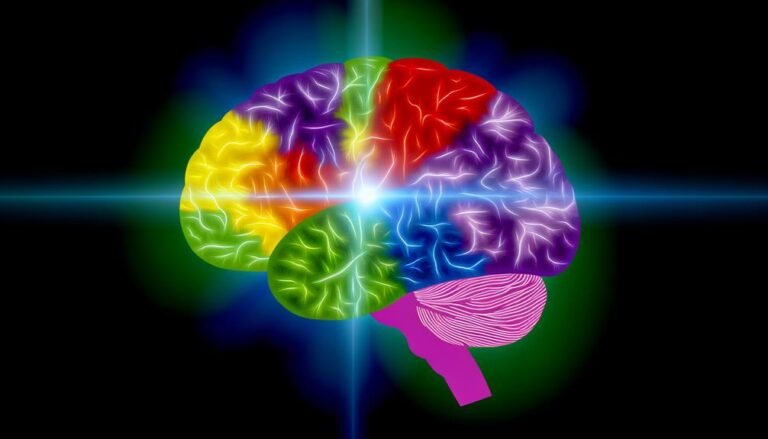Communication Skills Vital for Success: A Must-Have
In today's competitive landscape, the ability to communicate effectively stands as a cornerstone for achieving one's goals and ambitions. Whether it be in the boardroom, the classroom, or any interpersonal setting, mastering the art of communication can be the differentiating factor between success and mediocrity.
However, the realm of communication skills is vast, encompassing verbal, non-verbal, and written elements that require continual refinement and adaptation. This discussion will shed light on the multifaceted benefits of honing communication skills, illustrating how they serve as a linchpin for success in personal and professional spheres.
Key Takeaways
- Effective communication is essential for personal and professional success.
- Poor communication leads to financial losses and project failures.
- Managers play a critical role in improving organizational communication.
- Engaging employees through communication enhances productivity and reduces disengagement.
Importance of Effective Communication
Effective communication serves as the cornerstone of success in both personal and professional realms, acting as the linchpin that propels individuals and organizations towards their goals.
Communication strategies are vital for effective engagement, ensuring that messages are conveyed clearly and received accurately. Utilizing methods such as active listening, clear and concise messaging, and feedback mechanisms can enhance the quality of interactions.
Effective engagement through regular, formal, and informal conversations helps foster a positive work environment and boosts employee satisfaction. By implementing ongoing communication between managers and employees, organizations can increase productivity, reduce conflicts, and improve morale.
Embracing adaptable communication styles, conflict resolution skills, and empathy further strengthens relationships and contributes to overall success.
Role of Managers in Communication
Managers play a pivotal role in organizational communication by serving as the linchpin that connects strategic objectives with day-to-day operations, ensuring clarity, alignment, and engagement throughout the workforce.
- Enhancing Leadership: Managers need to demonstrate strong leadership qualities through effective communication.
- Fostering Engagement: Engaging employees through regular, formal, and informal conversations is crucial for maintaining high levels of engagement.
- Building Trust: Establishing trust through transparent and open communication channels is essential for effective leadership.
- Setting Clear Expectations: Managers should communicate clear goals and expectations to ensure everyone is on the same page.
Employee Engagement and Communication
To foster a culture of open dialogue and mutual understanding, prioritizing employee engagement through effective communication is paramount in cultivating a productive and harmonious work environment. Utilizing communication techniques and engagement strategies is vital in ensuring employees feel valued and heard.
Regular conversations with managers, including informal 'quick connects,' help clarify expectations and priorities, reducing disengagement rates. Lack of communication can lead to unfavorable views of leadership and higher disengagement levels.
Implementing ongoing dialogues between managers and employees offers a tangible return on investment for organizations. By focusing on enhancing communication channels and fostering a culture of transparency and trust, companies can boost employee satisfaction, productivity, and overall success.
Strategies for Effective Communication
Implementing various communication strategies is essential for fostering effective interactions within organizations and enhancing overall productivity and success. Effective communication can be achieved through various means, including:
- Attending communication workshops: These workshops provide valuable insights and practical techniques to enhance communication skills.
- Leveraging emotional influence: Understanding and influencing emotions can motivate action, leading to more impactful communication.
- Adapting communication strategies: Learning how to tailor communication approaches through conferences and training sessions can significantly improve effectiveness.
- Encouraging ongoing conversations: Facilitating regular discussions between managers and employees can increase engagement and strengthen relationships within the organization.
Benefits of Effective Communication Skills
Effective communication skills serve as the cornerstone of organizational success, offering a multitude of benefits that enhance collaboration, productivity, and overall work environment dynamics. These skills are instrumental in enhancing relationships and fostering career development. By mastering effective communication, individuals can establish strong connections with colleagues, superiors, and clients, leading to a more harmonious work environment. Additionally, clear and concise messaging can propel career growth and advancement opportunities. To highlight the advantages of effective communication skills, consider the following table:
| Benefits of Effective Communication Skills | ||
|---|---|---|
| Enhances Relationships | Boosts Career Development | Improves Public Speaking Skills |
Impact on Teamwork and Collaboration
Enhancing teamwork and collaboration within an organization is greatly influenced by the effectiveness of communication skills among its members. Effective communication plays a pivotal role in fostering cooperation and enhancing synergy among team members.
Here are four key ways in which communication impacts teamwork and collaboration:
- Promotes Transparency: Clear communication ensures that all team members are well-informed, reducing misunderstandings and promoting transparency.
- Encourages Active Listening: By actively listening to one another, team members can better understand different perspectives and work together more effectively.
- Resolves Conflicts: Communication skills enable team members to address conflicts constructively, leading to quicker resolutions and a more harmonious work environment.
- Strengthens Relationships: Open and honest communication helps build trust among team members, strengthening relationships and promoting a more cohesive team dynamic.
Improving Employee Morale and Engagement
Improving morale and engagement among employees is a fundamental aspect of cultivating a positive and productive work environment. Boosting motivation and fostering connections are key strategies to enhance employee satisfaction and performance. By creating a supportive atmosphere, organizations can see increased productivity and reduced turnover rates. To illustrate, here is a table showcasing effective ways to improve morale and engagement:
| Strategies for Improving Morale and Engagement |
|---|
| Regular recognition of achievements |
| Encouraging open communication |
| Providing opportunities for growth and development |
| Organizing team-building activities |
Implementing these approaches can lead to a more engaged workforce, higher morale, and ultimately, greater success for the organization.
Conflict Resolution and Negotiation Skills
Recognizing and managing conflicts in the workplace is crucial for fostering a harmonious and productive environment. Conflict resolution techniques and negotiation strategies play a vital role in maintaining a positive work atmosphere. Here are some key points to consider:
- Active listening is essential for understanding all perspectives involved.
- Encouraging open communication can help in resolving misunderstandings effectively.
- Finding common ground and seeking mutually beneficial solutions is crucial.
- Implementing a fair and unbiased approach can lead to successful conflict resolution.
Continuous Learning and Improvement
Continuous learning and improvement are foundational elements that drive personal and professional growth in today's dynamic and competitive environment. Embracing a feedback culture is essential for individuals to identify areas for development and refine their communication skills. Seeking feedback from peers, mentors, or supervisors can provide valuable insights and perspectives that contribute to personal improvement.
Additionally, practicing self-awareness techniques such as reflecting on past interactions, identifying strengths and weaknesses, and setting specific communication goals can enhance one's ability to communicate effectively. Engaging in continuous learning opportunities, such as communication workshops and training sessions, allows individuals to stay updated on best practices and refine their communication strategies.
Utilizing Technology for Efficient Communication
In today's fast-paced business environment, leveraging technology is essential to streamline communication processes and enhance efficiency.
- Utilizing technology: Embracing various communication tools and platforms
- Virtual meetings: Conducting meetings online to save time and resources
- Digital collaboration: Working together on projects in real-time from different locations
- Integration of communication apps: Using software to facilitate seamless interactions
Conclusion
In conclusion, effective communication skills are the cornerstone of success in today's fast-paced world. Like a well-oiled machine, clear and concise communication drives productivity, teamwork, and innovation.
By honing these vital skills, individuals can navigate the complexities of organizational settings with ease, fostering collaboration and achieving desired outcomes. Just as a smooth river flows effortlessly, mastering communication is essential for building strong relationships and achieving personal and professional growth.







